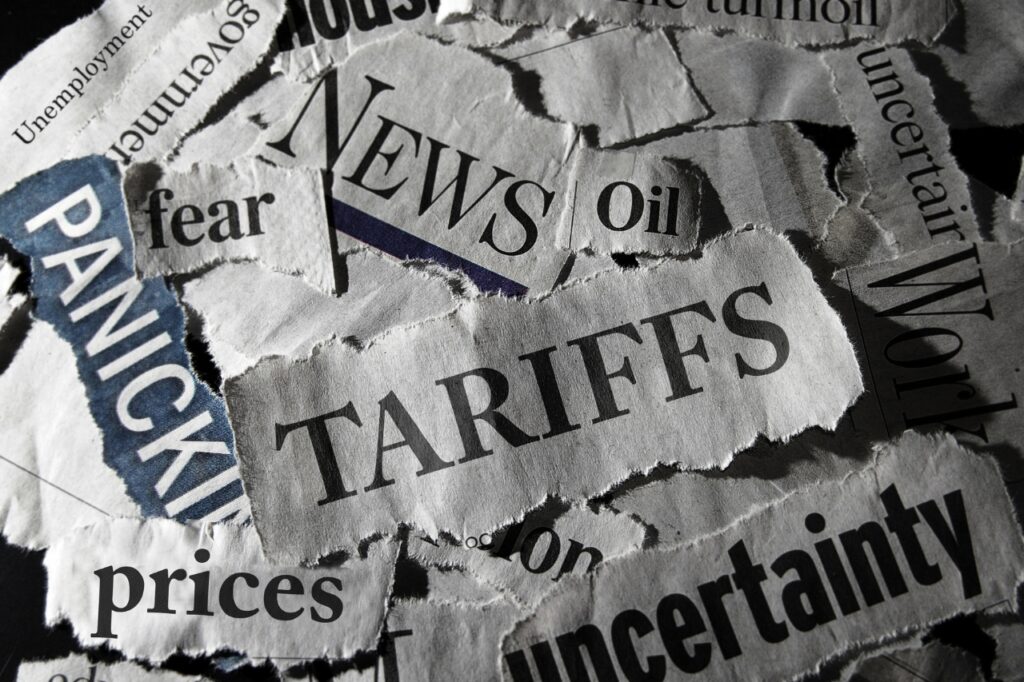
The modern business landscape has undergone significant changes in recent years, driven by globalization, technological development, and growing awareness of environmental and social issues. As companies increasingly rely on complex global supply chains to meet consumer demand, sustainability and corporate social responsibility (CSR) have become critical components of their Environmental, Social, and Governance (ESG) strategy.
By incorporating these principles into their supply chain operations, companies can make positive changes while enhancing their brand image and bottom-line performance. A survey conducted by Cone Communications revealed that 87% of consumers are more likely to purchase a product from a company that supports social or environmental issues they care about, and 76% will refuse to buy a product if they discover a company supports an issue contrary to their beliefs.
Sustainability and CSR are closely related concepts that involve minimizing the environmental impact of supply chain operations and promoting social responsibility and ethical behavior.
In this article, we’ll explore the benefits of being environmentally conscious within the supply chain and some strategies for making a real impact. We also share how GAINS is taking an active role worldwide and hopes to inspire supply chain executives to take action and make CSR a core part of their business strategy.
ESG Commitments in the Supply Chain: An Important Step Forward
The global degrading environmental conditions have already made it challenging for the supply chain. Severe climate change threats like hurricanes, wildfires, and extreme weather disrupt the natural flow of the supply chain and lead to increased cost, decreased efficiency, and reduced reliability.
Customers and stakeholders are more socially and environmentally aware than ever. In recent years, social and environmental issues have become a significant concern for businesses and consumers alike.
Spurred by an organization’s ESG commitment, a business’s supply chain can have a significant impact when it comes to making positive contributions to the environment. However, implementing sustainability and CSR practices in the supply chain is not always straightforward. It requires a commitment from top management and collaboration with suppliers, customers, and other stakeholders. It also involves balancing economic, environmental, and social considerations, which can be challenging.
The rise in senior management’s focus on their ESG strategy is a positive step forward, and significant changes are being implemented. Many companies are progressing by integrating sustainability and corporate social responsibility into their supply chains and reaping all the benefits.
For example, Nike has implemented sustainability measures in its supply chain by reducing waste and water usage, while Walmart has implemented sustainable sourcing practices and is committed to reducing greenhouse gas emissions throughout its supply chain.
Benefits to the Supply Chain
Prioritizing sustainability and corporate social responsibility in your supply chain can bring various benefits, including.
- Saving cost, increasing efficiency, and reducing risk
For example, cost savings and increased efficiency can be achieved by implementing sustainable logistics practices, such as optimizing transportation routes and reducing waste. In addition, reducing an organization’s environmental impact can help it avoid regulatory fines and legal liabilities.
- Fruitful relationships and new opportunities
Companies must prioritize CSR to build stronger relationships with suppliers, customers, and other stakeholders. As a result, trust and collaboration can increase, creating new growth and innovation opportunities.
- Enhancing the company’s brand image and reputation
As consumers become more aware of the social and environmental impacts of the products they buy, they are more likely to support companies that demonstrate commitment to sustainability and corporate social responsibility. Positive reputations can also help companies attract and retain employees motivated by the company’s ethics and values.
An example of the advantages of giving importance to sustainability and CSR is the case of Patagonia, a company specializing in outdoor clothing. Since its founding, Patagonia established a reputation for dedication to ethical and sustainable practices. As a result, its customers are willing to pay more for its products, and the company has recently experienced substantial growth. Additionally, Patagonia has fostered strong connections with its suppliers by working alongside them to maintain ethical labor practices and sustainable sourcing, leading to higher trust and collaboration with its partners.
At GAINS, we’ve also taken multiple green initiatives, including solar energy projects in Chicago and clean water access programs in Haiti. GAINS endeavors to increasingly offset its carbon footprint by sponsoring sustainable solar array construction that also provides direct local community support. We take our responsibility to our environment and our communities seriously and take direct action to achieve measurable impact.
Sustainable Strategies
Implementing sustainability and CSR in the supply chain can be challenging, but there are several strategies that companies can use to get started.
Starting at the stage of raw material and manufacturing to transportation and distribution, sustainability can be ensured by:
- Conducting a comprehensive assessment
Companies should thoroughly evaluate every link in their supply chain to find potential social and environmental risks. This can involve reviewing suppliers’ practices, monitoring compliance with regulations, and identifying opportunities for improvement. Companies can create focused strategies to address the risks and opportunities in their supply chains by understanding them.
- Setting up the right goals
Companies should develop and communicate a clear ESG strategy that defines their commitments, goals, and targets. The policy should be communicated clearly to suppliers, employees, and other stakeholders to ensure everyone is aligned with the company’s vision and acting accordingly.
- Pursuing ethical sourcing
Companies should engage with their suppliers to encourage and ensure ethical, sustainable practices. This should include providing necessary training if needed. Companies can build stronger relationships by working closely with suppliers and ensuring their products are produced ethically and sustainably.
- Using sustainable logistics
At every stage of the supply chain, sustainable practices should be implemented to reduce environmental impact. This can include using eco-friendly materials, reducing waste, optimizing routes, encouraging recycling, and increasing efficiency.
- Measuring and reporting
Finally, businesses should measure and report on their sustainability and CSR performance to track progress and show their commitment to stakeholders. This can involve setting targets for key performance indicators, such as carbon emissions, waste reduction, and supplier compliance, and regularly reporting progress towards these targets.
GAINS and Supply Chain Leaders: Making Real Changes
As supply chain executives and leaders, we must drive this change and lead the way toward a more sustainable and socially responsible future. In today’s business landscape, companies can no longer afford to ignore their supply chains’ social and environmental impact.
The key is to embrace sustainability and corporate social responsibility as core business principles and to work collaboratively to achieve a more sustainable and equitable future for our customers, employees, suppliers, and the planet.
With an experienced partner like GAINS in your corner, you can evolve your supply chain using a multi-echelon supply chain optimization and planning solution trusted by industry leaders and customers across the globe. GAINS is committed to promoting sustainable growth, securing the environment, and helping society.
Contact Us to learn how GAINS can help you make better supply chain decisions to help lessen your company’s environmental impact.



